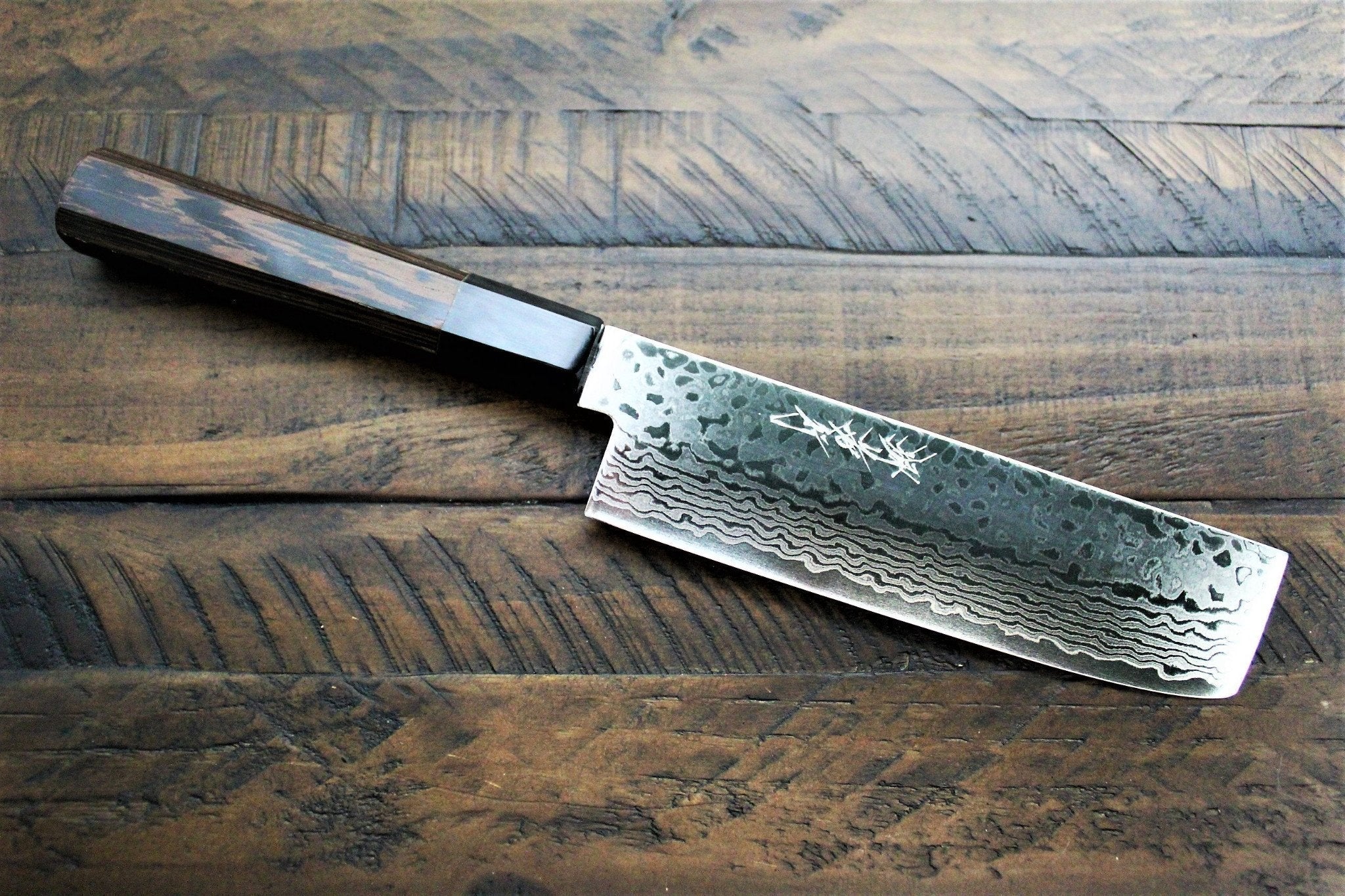
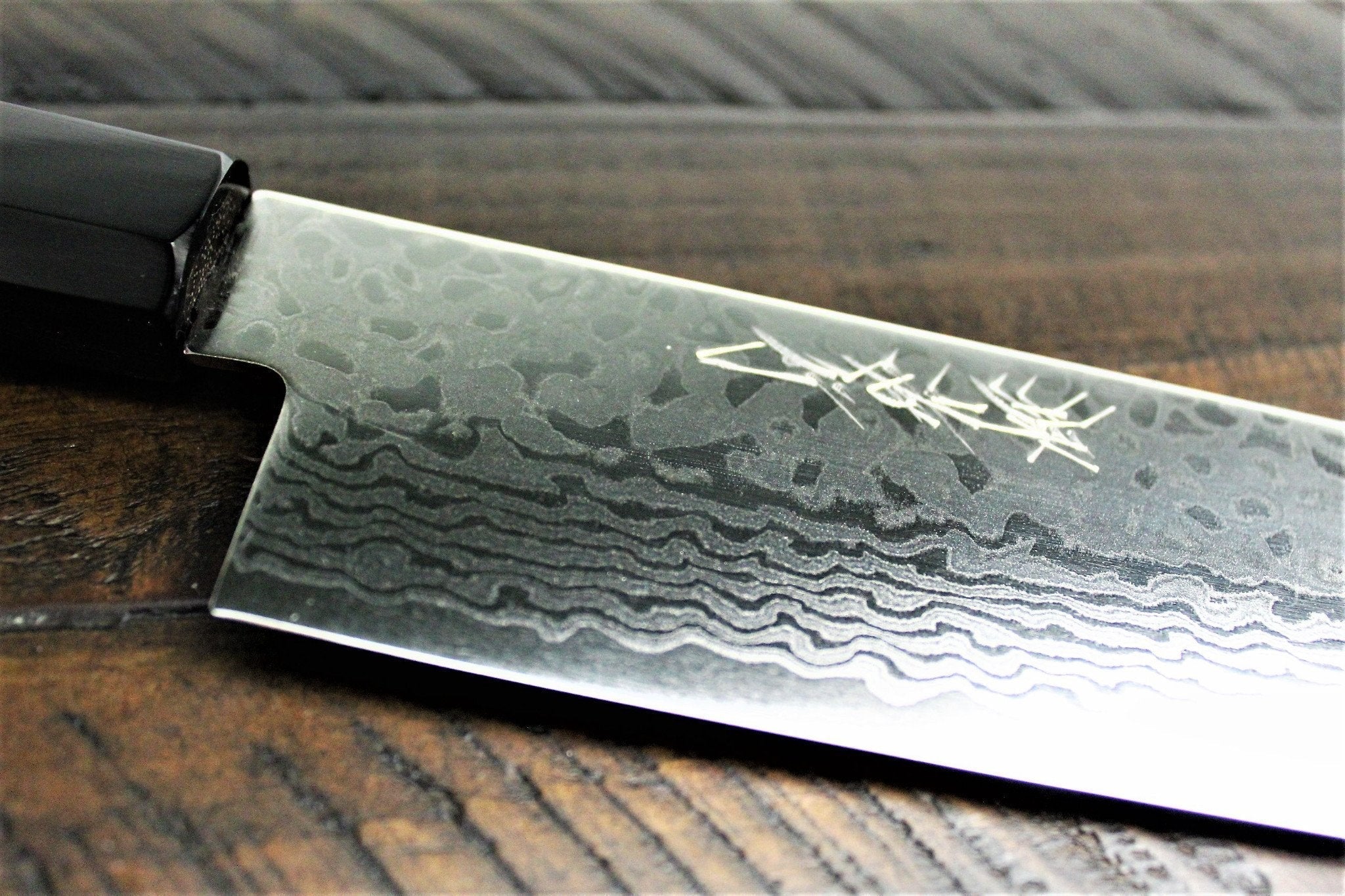
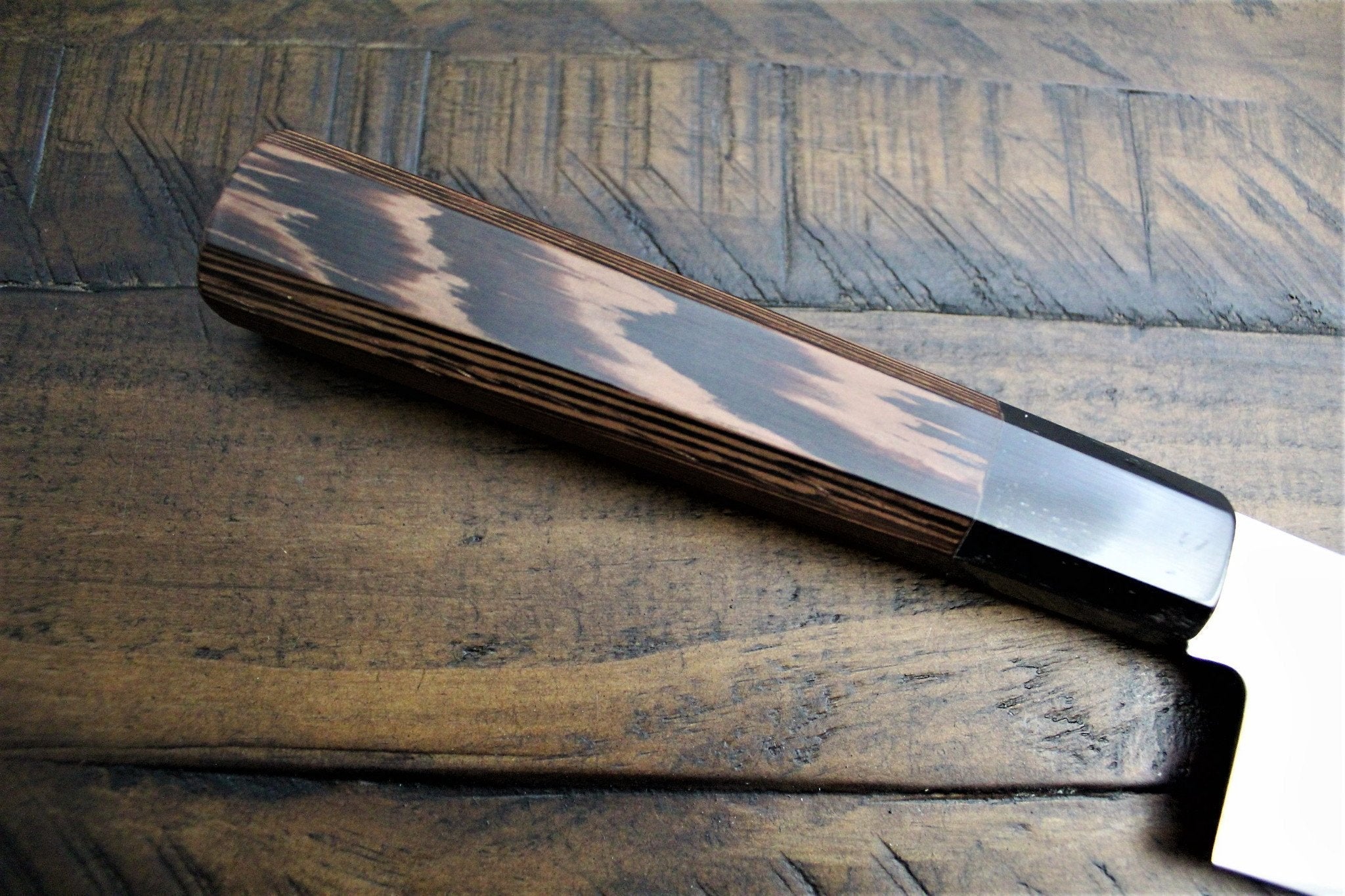
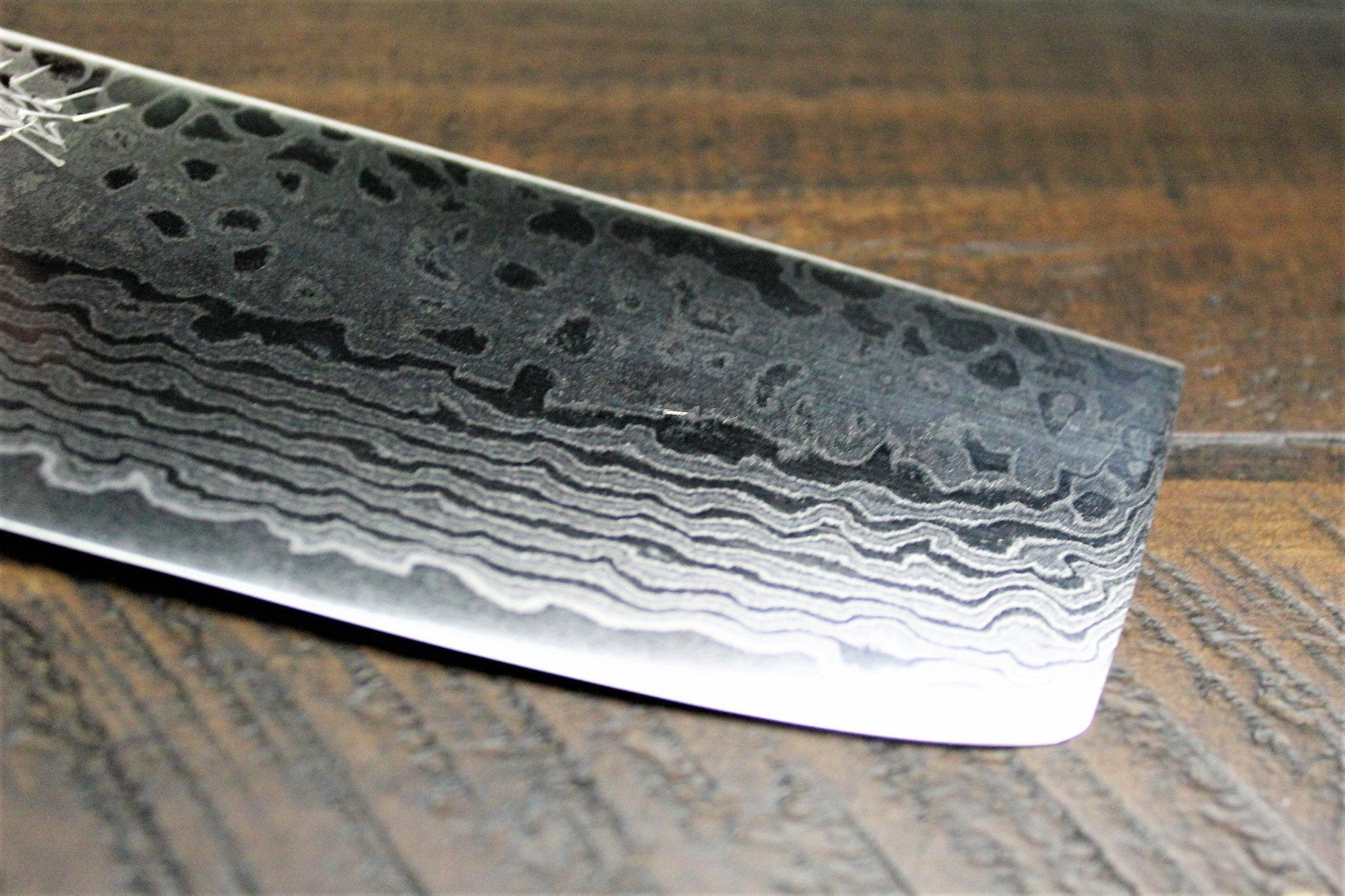
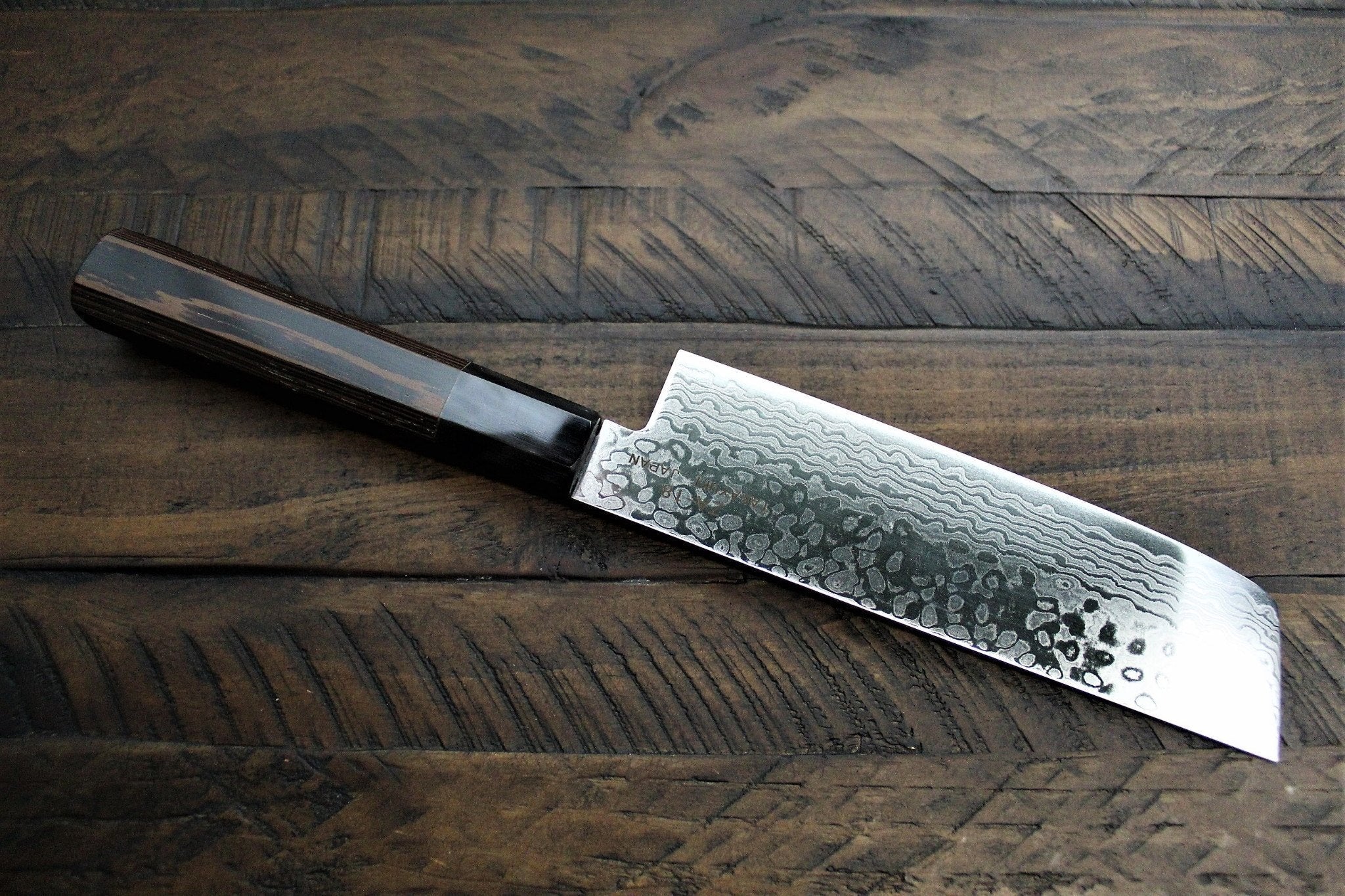
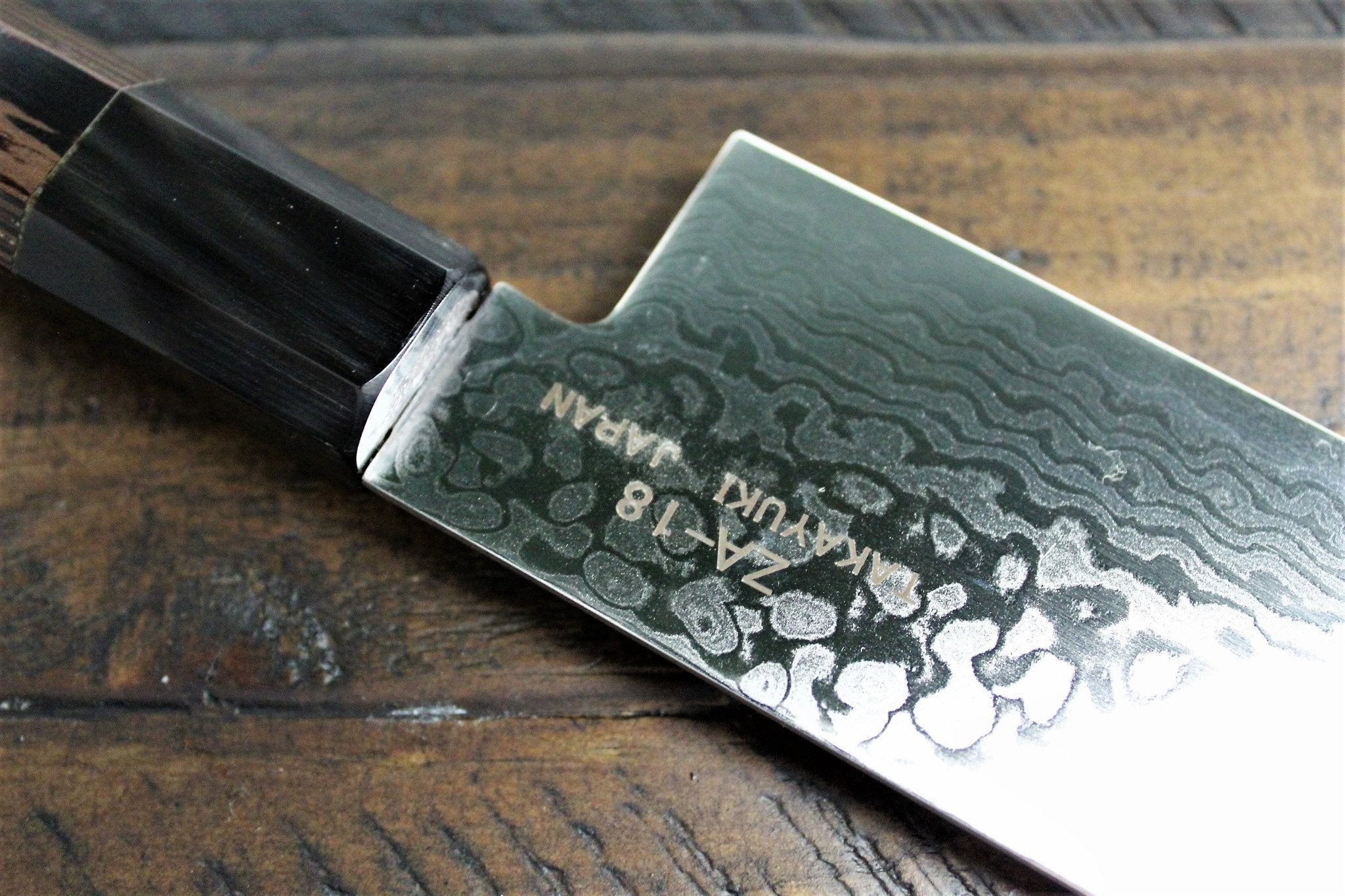
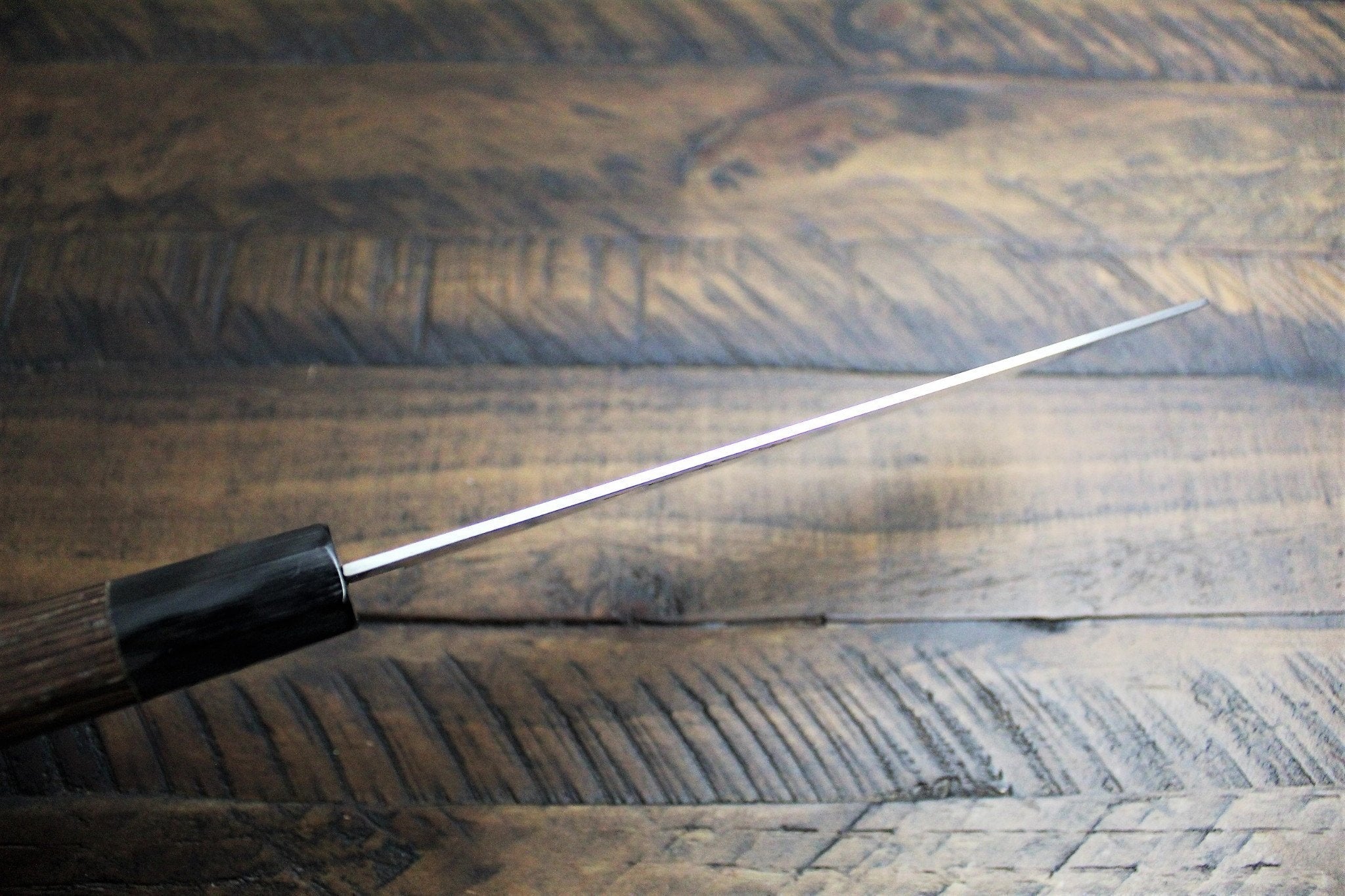
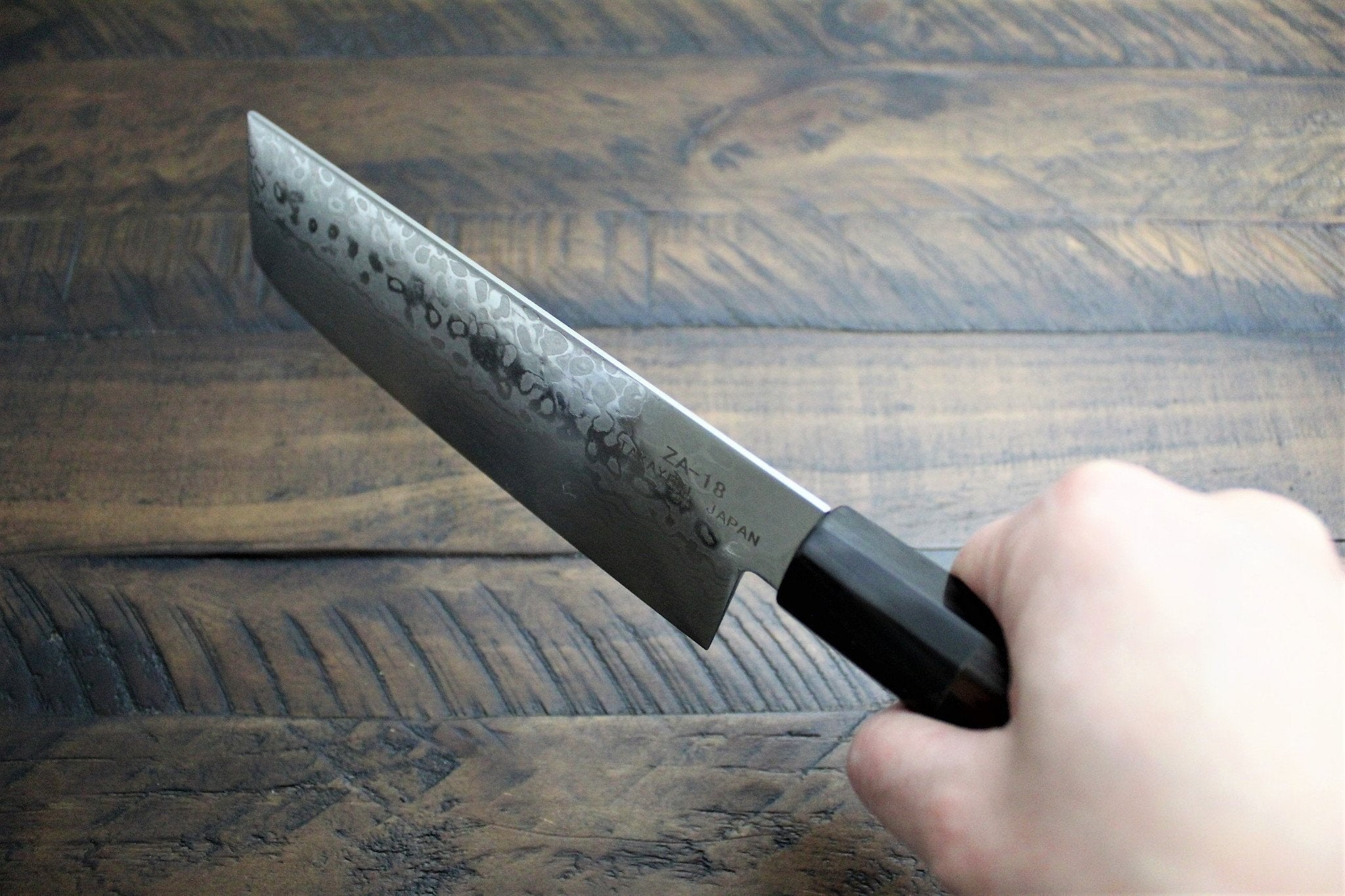
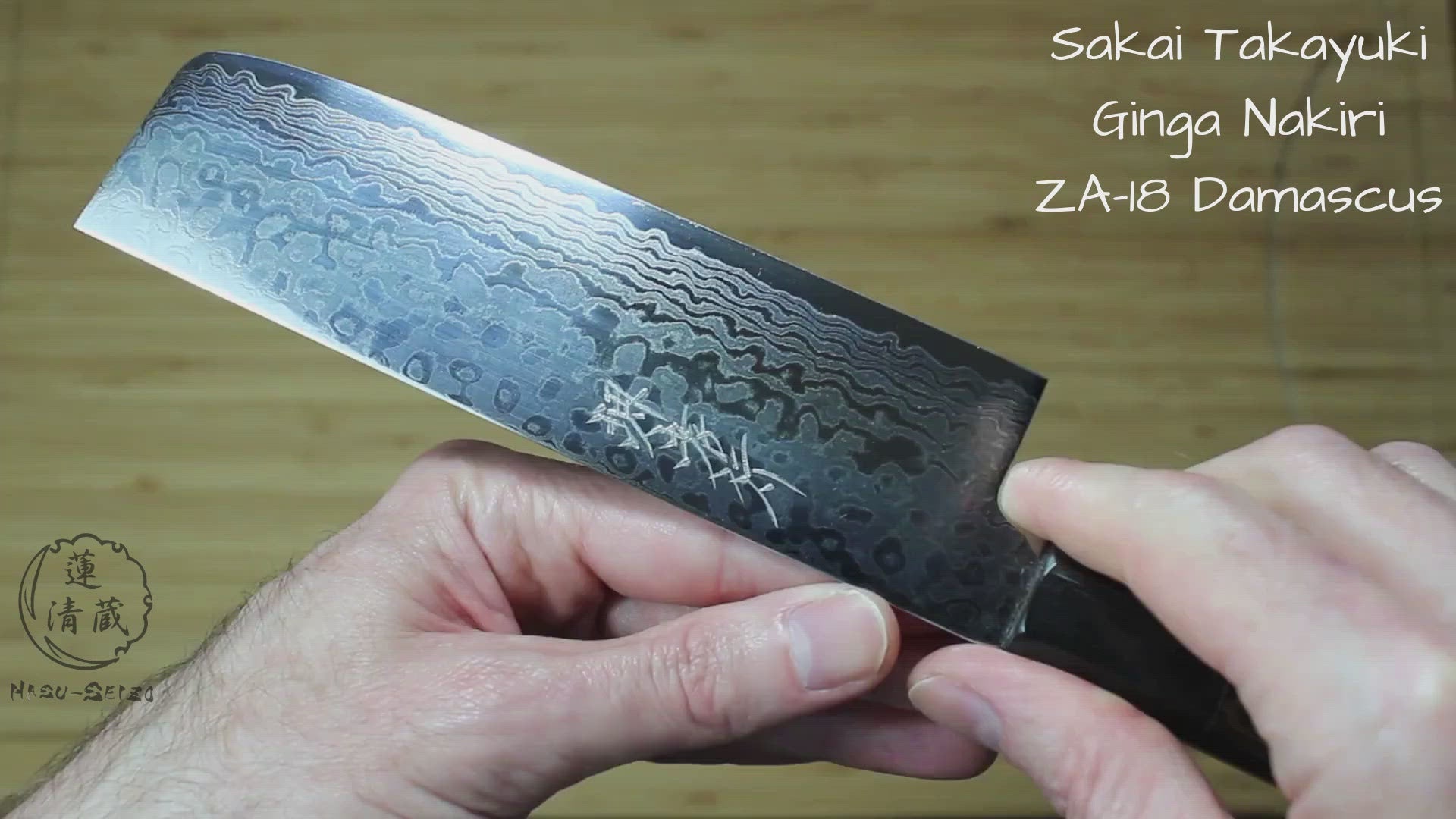
Sakai Takayuki Nakiri Knife 165mm (6.5") Damascus 69 Layer - Ginga
Interested in a vegetable knife that will make kitchen prep a pure joy?
The Sakai Takayuki Ginga Japanese Nakiri knife is a step above! This Japanese knife has a great balance and feel in the hand while the ZA-18 stainless steel can maintain a great edge. This Damascus Nakiri knife will make short work of anything from daikon’s to cabbage with plenty of hand clearance as you chop.
Ideal for: Chopping, slicing, dicing, and mincing.
Useful on food types: All vegetables.
69 Layer Damascus Nakiri Knife (ZA-18 stainless steel)
Knife Length: 180mm (7.1")
Handle Type: Japanese Style, Wenge and Buffalo Horn Handle
Blade Width: 45 mm
Blade Thickness:2 mm
Handle Length:133 mm
Handle Thickness: 26 mm
Elevate your cooking with a Damascus Nakiri knife
Damascus Nakiri knives are designed to be thin knives that slice, cut & chop easily through vegetables to maintain the integrity of each component and freshness.
This Damascus Nakiri knife is made of ZA-18 Stainless Steel with excellent sharpness and durability as well as good resistance to rust. This series is called Ginga which means Galaxy, evident by the stunning visual patterns on the blade. The handle is beautiful Wenge wood. Wenge is an African timber that has a beautiful black and gentle color tone and a unique delicate grain. It is known as very strong and hard wood.
ZA-18 has features very similar to VG-10 stainless steel. While VG-10 is the primary steel of the Takefu steel manufacturer, ZA-18 is made by Aichi Steel. The steels have a similar chemical composition, with ZA-18 having a slightly higher content of carbon, chromium, molybdenum and cobalt, and thus a little more strength, durability and corrosion resistance. The steel has been tempered to a hardness of around 61-63 HRC.
Choose options
